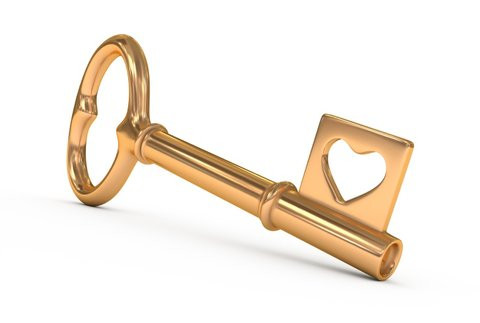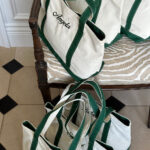It’s universally understood that hospitals are not anyone’s preferred location for spending the holiday season. Whether the holidays evoke feelings of joy, stress, or a mix of both, a hospital setting often amplifies feelings of isolation and detachment from the festive spirit.
This sentiment rings particularly true in the nursing profession. While many experience a slowdown in their workplaces during December, allowing for cherished moments with family and friends, indulging in holiday treats, and enjoying the warmth of homes and hearths, hospitals maintain their relentless pace. For healthcare professionals, it’s largely business as usual.
Yet, even amidst the demanding routine, the holiday season in a hospital can reveal unexpected gifts.
My day began, typically, at 7 a.m., bustling with responsibilities. Among my patients was a young woman in her thirties battling severe mouth sores, a painful consequence of chemotherapy and a compromised immune system. The excruciating pain often necessitates continuous narcotics, administered via a patient-controlled analgesia (PCA) pump. This device, crucial for pain management, requires a special key for nurses to operate, ensuring controlled access to the potent medication cartridge.
On our floor, these PCA keys had a peculiar habit of vanishing, much like socks in a dryer. Late one afternoon, I discovered the key, usually secured to my wrist by a rubber band, was gone. Panic set in as I retraced my steps, frantically searching the patient’s room, medication cart, and my own pockets. The afternoon had been a whirlwind, and pinpointing the exact moment of its disappearance proved impossible.
This lost key was not just any key; it was the only key available for the entire floor. Its absence crippled our ability to manage patient pain effectively. Locating it became paramount.
Confessing my oversight to the charge nurse, I was met with understanding rather than reprimand. She surmised that the key likely got discarded with the gloves and gown used for isolation precautions. It was a plausible scenario. The removal process, pulling the gown down and off, gloves still attached, could easily ensnare the small key and send it into the trash.
 A close-up of a PCA key hanging from a beige rubber band, illustrating the small but essential tool for pain management in hospitals, reflecting the unexpected gifts found in challenging healthcare settings.
A close-up of a PCA key hanging from a beige rubber band, illustrating the small but essential tool for pain management in hospitals, reflecting the unexpected gifts found in challenging healthcare settings.
However, time was a luxury I didn’t have. Other patients required immediate attention – medications, IV adjustments, blood draws – tasks only I could perform. My patient with mouth sores, thankfully, was still able to manage her pain with the pump for the moment. The frustration of being pulled in multiple directions was overwhelming.
Just as I was grappling with this dilemma, the charge nurse and another colleague reappeared, gowned and gloved. They had taken it upon themselves to sift through the wastebaskets in a silent search for the missing key.
They began methodically, starting with the med cart’s trash, then moving to the PCA patient’s room, and finally, to the isolation room’s wastebasket. The task was unpleasant, to say the least, but their determination was unwavering.
As I walked down the hall, I saw them emerge from the isolation room. The charge nurse beamed, holding aloft the small, shiny key, dangling from its beige rubber band. Relief washed over me in a wave.
A squeal of delight escaped my lips, followed by an impulsive hug for my charge nurse. She chuckled, a mix of amusement and warmth in her eyes. “I hope we’re at least getting coffee out of this,” she quipped.
A resounding “yes” was my immediate reply. In hospital culture, “coffee” is code for something more indulgent than the cafeteria brew. It signifies the specialty drinks – mochas, lattes, even hot chocolates with whipped cream – from the coffee shop across the street. It’s a small indulgence, a momentary pause in the relentless demands of the day, a tiny piece of happiness.
The next day, when another nurse volunteered for a coffee run, I didn’t hesitate to offer my card, insisting on treating my key-finding heroes to their beverages of choice.
The experience brought to mind a cherished Christmas image: the Grinch from the 1966 cartoon, poised to cast his stolen loot from Mount Crumpit. The Whos’ unexpected singing awakens his heart, revealing that Christmas transcends material possessions. As his sled teeters, he finds the strength not to destroy it, but to save it, his heart swelling with newfound understanding.
Working in healthcare, especially during demanding shifts, can sometimes make one question their capacity for compassion. Losing the key amplified the day’s challenges, making me feel inadequate.
But witnessing my colleagues’ selfless act – sifting through trash without hesitation or complaint – felt like an unexpected gift, a profound gesture of support. Their generosity expanded my own heart on a difficult day. They offered help unasked, with little fanfare, and genuinely without expecting anything in return, save perhaps a symbolic coffee.
This is the essence of the holiday season, particularly for those in healthcare. The work continues, the giving continues, often in unexpected ways, reminding us of the human connection that persists even in the most challenging environments. These are the real Nyt Gifts, the intangible acts of kindness that resonate far beyond any material present.

